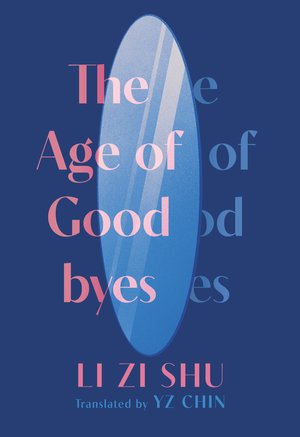You have no items in your cart. Want to get some nice things?
Go shopping
I have often thought it sad that Jorge Luis Borges never wrote a novel. Greatly fond of his short stories, or rather, his riddling postcards from history, or puzzles wrapped up in literary enigmas, I hope he might have tried his hand at the longer form. On beginning Li Zi Shu’s popular novel, The Age of Goodbyes, I was excited to find a rather Borgesian conceit: a narrator who has found the very book I was reading, and which seems to start at the end. This is the kind of playful and intriguing opening that one might find in a novel by Senor Borges himself, had he ever written one.
The narrator tells us a little of her family, and the lives of her mother and other sex workers in a motel. Before long though, we are into the world of the main character of the novel, Du Li An, and her memories of and interactions with the many characters of her life in Malaysia and the “kopitiam”, or coffee shop, they run.
The narrative spans a period of Malaysian history that includes political upheaval and, we’re told early on, “unexpected riots, arson and bloodshed”. But the unexpected part is that we never encounter any of this in the course of the novel. Rather than a Borgesian labyrinth, the Italo Calvino style opening to the novel seems only to frame, and very occasionally interrupt, a lengthy and sometimes meandering narrative that is closer to that other South American giant of literature, Gabriel Garcia Marquez, except without the magical realism, or the magical prose.
Li does conjure a sense of place, with references to tangyuan, congee and yam stewed with pork belly (it can be mouth-watering at times). But the story is that of the memories and imaginings of a few Malaysian women at different periods in time, rather than a story of Malaysia.
Perhaps I wanted to hear more from the opening narrator, as this is when Li is at her most lyrical (albeit only occasionally), such as describing the “dark corners” as the “backstage areas of a city”, or when imagining the young Thai sex worker, Mana strolling through the night market, “wearing those platform shoes that make her proud, perhaps latched onto somebody’s arm, she first sauntered through the night market, and then stood in some spot on the plaza, her head upturned to await the neon flowers that would soon unfurl and die in the sky”.
When told details from short stories the author of the fictional book ‘The Age of Goodbyes’ has supposedly written, I am left wishing I could read those instead, stories in which “sunlight scissored into confetti on the Mekong river; giant catfish ogled by crowds” where readers are struck by “the Zen trance of crocodiles; the eerie similarities between an elephant trunk and a python; the frosted red lips and riotous feather boas on trans women”.
Li can be most interesting, if that’s the right word, when describing the various sexual encounters in the novel: ”Mana, you’re really like a venomous snake, you say, as you watch semen trickle from the corners of her mouth”.
Some might say she’s verging on pornography here, but occasionally, as with this dream-scene (not uncommon in the book) her prose proves more hilarious than sexy: “Nimbly she dives into its currents and sucks you off like a mermaid”.
Li employs some delightful similes, such as a mother’s knee resembling a “zongzi”, or the children who “came in waves, like flies and bees hovering over sugarcane drink stalls”, but more often than not, she (or the translator) reaches for the handy cliché for the sake of convenience. Twins were once “peas in a pod”; old ladies “clung together like birds of a feather”. One character “resembled that movie stereotype of a man who loved to stir up trouble”, and one lady is as “cool as a cucumber”. We are moved onto new topics with the phrase, “speaking of…”
This novel has become very popular in Chinese cultures outside of China, such as Taiwan, and one can see why. Li reanimates with a Proustian fondness the yearnings and struggles of Chinese-Malaysian women over the years, and presents a vivid sense of place with references to local food, cinema and song. But, ultimately, I felt that the experimental format was unnecessary, and simply left me wishing I were reading the parts I didn’t have access to – perhaps that’s the point? The long narration between the interruptions is closer in content to the soap operas some of the characters love to watch, than it is to the memories of prose or magical ramblings of Marquez, and perhaps that accounts for the novel’s popularity.
Finally, why didn’t Borges write a novel? In his own words, “a work of three hundred pages depends on padding, on pages which are mere nexuses between one part and another. On the other hand, it’s possible for everything to be essential, or more or less essential, or — shall we say — appear to be essential, in a short story”.
by Li Zi Shu
Translated by YZ Chin
The Feminist Press, 360 pages
Christopher Redpath
Christopher Redpath is a writer. He studied literature in London, and has lived in Japan and Taiwan.




